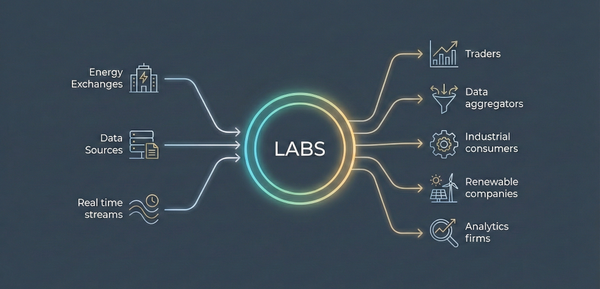I don't want to get ahead of myself, but Hungary is quickly becoming one of the hottest destinations for Western companies looking to outsource engineering work. This is largely due to the fact that Hungarian engineers entering the workforce are immediately capable of creating value. They speak excellent English, have world-class theoretical engineering backgrounds, and are highly adaptable. Typically, the Hungarian market doesn't offer as many opportunities to its engineers as it should, so there's a strong openness to working abroad. In 2023, 26% of Hungary's exports (USD 41.3 Billion) went to Germany. This is usually for some type of engineering work. This means the Hungarian engineering culture is accustomed to Western norms. Even engineers trained in IT are socialized within this culture. The precise and world-renowned German automotive industry relies heavily on these Hungarian engineers.
Political stability, initiatives to encourage investment, and the famously low corporate tax rate in the EU (9%) further strengthen Hungary's position in IT outsourcing. This is further supported by the fact that world-renowned companies like the consulting firm McKinsey and the world's largest "asset manager" BlackRock have chosen Budapest as their strategic technology and operations hub. Hungary has also produced world-famous startups, whose development centers are also located in Hungary, such as Prezi and LogMeIn.
Did you know that Word & Excel were invented by a Hungarian software engineer named Charles Simonyi?

Summary
- Hungary is a top destination for Western companies outsourcing engineering work.
- Hungarian engineers are proficient in English and have strong technical backgrounds.
- Hungary's low corporate tax rate (9%) makes it an attractive investment destination.
- World-renowned companies like McKinsey and BlackRock have established operations in Budapest.
- Hungary has a high compliance rate, ensuring reliable and accurate financial reporting.
- The cost of engineering labor in Hungary is significantly lower than in Western Europe or the US.
- Hungary performs above average in Knowledge and technology outputs according to the Global Innovation Index.
- LinkedIn lists over 47,000 IT engineers in Hungary, providing a substantial talent pool.
Hiring Hungarian Engineers
Clear Objectives
If you're considering outsourcing software engineering work to Hungary, you should read this.
First, as with any business decision, you need to clearly define your goals.
What is the purpose of outsourcing? What should the engineering team based in Hungary achieve? Without a clear and well-defined goal, any outsourced work can easily lead to disappointment. After all, poorly defined objectives can have serious financial consequences. Outsourcing is a good choice if you know exactly what you expect from the outsourced engineering team. In many cases, it's not advisable to think about outsourcing in the early brainstorming phase. Perhaps occasional consultations would be more suitable to define clear goals and tasks.
Clear objectives are an important step regardless of the country you choose.
Many people don't choose outsourcing because of their fears about intellectual property rights. This is only a factor if you don't know exactly what you want to achieve and give the outsourced engineering team too much freedom.
Fortunately, the Hungarian entrepreneurial sector has a high compliance rate. Unlike the United States, where a startup's financial reporting can sometimes be superficial or rough, small Hungarian companies are subject to the same full and accurate reporting requirements as large companies. While small businesses may have higher administrative burdens than their American counterparts, this means that small Hungarian companies quickly gain experience in precise accounting.
Outsourcing Step-by-Step
I basically see three main IT outsourcing models, each with a different approach.
- Hiring an employee
- Freelancer, sole proprietor
- Company
When outsourcing, I think it's important to ask yourself the following questions to implement the most appropriate strategy:
- How many engineers do I need?
- What skills do I need?
- What timeframe am I thinking about?
- How do I require the collaboration? This includes daily, weekly regular updates, reports, etc.
- Am I thinking about purchasing engineering work hours or a finished delivered engineering product?
Once you've thought through these questions, it will be clear which model is right for you.
In any case, engineering manpower can be purchased from both small and large companies. Typically, larger and more developed companies will have higher pricing, but this is accompanied by reliability. Smaller companies respond faster and cheaper, but the risk can be higher. However, this risk can be mitigated through proper due diligence. Without local knowledge in Hungary, I would recommend the following:
Option A
For hiring an employee or a sole proprietor, a suitable intermediary could be a Hungarian headhunter or a company specializing in headhunting. There are countless options, and you can even request candidates from multiple sources at once, and it might be worthwhile. These typically operate on a commission-based model. Headhunting companies also specialize. I know three types:
- They do a lot of work to find a very well-matched candidate, who often seamlessly transitions, but even here it's worth testing the candidate professionally.
- They do a moderate amount of work to pre-filter a relatively good list, sending about 4-5 CVs. The candidates will need to be interviewed in multiple rounds, but at least their profiles are relevant to the topic.
- They send candidates on a conveyor belt. You'll need to develop a serious screening system to test candidates both personally and professionally. Ideally, this system should be able to efficiently process a large volume of candidates.
In any of these cases, the experience is that they guarantee the candidates. If they don't work out, they're very willing to assist in replacing the workforce. They usually link the commission to the full-time employment or the existence of a contract. So, a 3-month probationary period doesn't yet involve significant cost.
Option B
Purchasing labor from companies, I typically know two types of software development companies: one specializes in certain technologies and is a master of its field. These are usually well-coordinated engineering teams who can efficiently deliver finished products or value. The other is the software development company that is strong in recruiting and retaining employees. Larger IT companies with 50+ engineers are usually like this. These are usually diverse, can stably put together large engineering teams, and are typically experienced with management systems, but they struggle with employee turnover. In this case, you can directly contact these companies. It's worth asking several and comparing them according to a predefined evaluation system. Many Hungarian IT companies can be found on listing sites like Clutch, for example.
3 Examples of Outsourcing
SaaS Founder
A SaaS founder who bootstrapped a small digital business and has already validated the market, but the technology used for validation (e.g., Excel, Bubble) is no longer sufficient. Target: MVP development with optimal cost structure.
In this case, finding a strong freelancer or a small company with under 50 employees is a good choice, as Hungarian freelancers or small company engineers typically have more business thinking than a multinational IT specialist. It's even possible that a Hungarian engineer can fill the role of CTO up to a certain level.
Scale-up Founder
A scale-up founder who has successfully gone through a funding round and scaling the initially built operation would be expensive, so questions arise about the engineering operation.
Target: Cost-effective operation setup in Hungary (favorable tax conditions, smart engineers) while maintaining the most important competencies in-house to meet investor expectations.
In this case, I would consider creating a Hungarian legal entity and hiring employees. Obviously, the initial investment is the highest and difficult to implement without local knowledge, but as with anything, it's achievable with a little research.
Multinational Company
A large multinational company is looking for engineers to implement a greenfield project. Target: Bringing a fresh perspective into the company, establishing a strategic partnership, bringing in unowned competencies into the company such as artificial intelligence development.
In this case, I would look for a small Hungarian company that specializes in the "desired competencies," one that doesn't yet supply competitors and can grow together with the needs.
Why Outsource to Hungary?
The cost of labor in Hungary is low compared to Western Europe or the US, but the quality of engineering work is at least as high.
Is Hungary technologically advanced?
See the 2022 Global Innovation Index.
Hungary has been home to many historical engineering discoveries. Hungarian engineers are world-renowned, as seen at the following link: Here you can find many Hungarian inventions.
Attrition Rate in Hungary
According to TradingEconomics: "Historically, Hungary - Turnover in services reached a record high of 28.30% year-on-year in June of 2022".
Hungarian IT Engineers based on a LinkedIn Research
I used LinkedIn to research the number of IT engineers in Hungary, here is the current ( 06/02/2024 ) snapshot:
There are 47,000 IT engineers listed on LinkedIn. You have direct access to them. There are probably more than this number, but even for a recruiter it's hard to find someone without a LinkedIn profile. Recruiters source engineers in various ways, mainly through the largest Hungarian job listing portal called "Profession" or, of course, LinkedIn.
I've executed some queries on the profiles to get bullpark numbers:
| LinkedIn Search Query | Number of Engineers found by the Query |
|---|---|
| Python | 3,500 |
| Java | 3,500 |
| JavaScript or Typescript | 2,500 |
| C# | 2,500 |
| PHP | 2,000 |
| C++ | 1,500 |
| Artificial intelligence | 621 |
| React.js OR reactjs OR react | 537 |
| Angular | 384 |
| Artificial intelligence | 621 |
Conclusion
In conclusion, Hungary offers a compelling proposition for companies seeking to outsource IT development. Its combination of highly skilled engineers, cost-effectiveness, and a robust tech ecosystem makes it an attractive alternative to traditional outsourcing destinations. While navigating local nuances might require initial effort, the potential benefits of tapping into Hungary's talented pool of developers are substantial. Whether you're a bootstrapping startup looking for an MVP or a multinational corporation aiming for strategic innovation, exploring Hungary for IT outsourcing deserves serious consideration.
In case of question please feel free to reach out here!
Other references:
- [https://trendeconomy.com/data/h2/Hungary/TOTAL]
- [https://tradingeconomics.com/hungary/exports-by-country]
- [https://tradingeconomics.com/hungary/exports-by-category]




